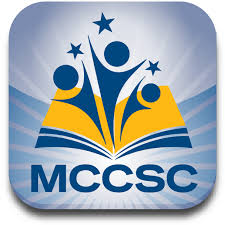
MONROE CO. – Monroe County Community Schools Corporation announced on Friday that all high schools will have 60-minute classes during the next school year.
The administration released the statement just days after teachers from both schools criticized the process. The letter said beginning this fall, the high schools will operate on a “hybrid block” with 60-minute classes. That’s 20 minutes less per class than currently is offered at Bloomington North High School.
The new schedule plan applies to all four high schools: Bloomington North, Bloomington South, Academy of Science and Entrepreneurship, and the Graduation School.
MCCSC recently informed parents the administration would be creating this new high school common schedule for the 2024-2025 school year, citing – “We remain committed to identifying and eliminating systemic barriers for our priority populations for whom our current methodologies and structures are not fully meeting their needs. These inequitable outcomes drive us towards continued improvement and a desire to implement necessary and positive change.”
As part of the school corporations’ 2021 strategic plan, MCCSC continued to study student performance and other key outcome data, including graduation rates, discipline, course enrollment and performance data, school enrollment data, attendance rates, student survey data, and more. These data are being disaggregated across priority populations. MCCSC administrators share relevant data as part of the strategic plan at monthly public Board meetings. Past presentations and additional details on this work can be found at www.mccsc.edu/strategicplan.
In May 2023, a high school experience survey was completed by 61.5% of students. As part of the survey, some students indicated a concern for the length of individual classes.
Currently, Bloomington High School North (BHSN) classes are 80 minutes long. As part of the student survey, 38% of BHSN students stated that classes were too long (with a higher percentage of students on free/reduced (F/R) lunch stating that classes were too long). Supporting this student concern, significant research has concluded that teenage engagement is reduced when classes are too long.
Additionally, some subjects, such as math and foreign language, benefit from more frequent repetition; this is especially true for students of poverty from disinvested communities. The current practice of attending classes at BHSN an average of 2.5 days a week disproportionately impacts the priority populations due to infrequent opportunities for regular instruction and interaction with teachers.
While a recent letter from BHSS teachers and staff indicated that equity exists by placing students in “long classes” for subjects like Algebra I, Algebra II, English 9, English 10, and English 11 through “tracking the needs of students,” this practice creates greater inequities in course access and opportunities.
The current practice defined by BHSS teachers results in students being assigned varying credits for each course (i.e. two trimesters vs. three trimesters) and has resulted in 54% of students on F/R taking classes in the arts and 36% of students with dis/abilities taking classes in the arts. This is compared to 65% of all other students who take classes in the arts. In short, the practice of “tracking” students in the trimester system has resulted in inequities.
Earlier this school year, MCCSC reviewed student transfers between high schools with different schedules (i.e. semesters vs. trimesters). For each of these schedule designs, pacing guides and other curricular considerations can vary greatly.
Over the past five years, more than 100 transfers to or from an MCCSC high school occurred where schedules were not aligned, and 55% of the transfers were students on F/R lunch. Moreover, these identified transfers were twice as likely to be Black/African-American students. Course access and opportunities can be improved for all by aligning school schedules.
Bloomington High School North teachers recently wrote, “Equity is options,” but this is only true when these options also exist for the school’s historically and systemically marginalized populations; otherwise, it is an option for some.
According to school officials, and the administrative team charged with implementing an equity-centered strategic plan, the status quo is not acceptable when the beneficiaries of the current schedule design are less complex, less diverse, and have fewer exceptions than the overall student body.
To provide greater time to prepare for schedule changes, coupled with a desire to clarify misinformation regarding potential schedules, MCCSC administration has identified the key features of next year’s schedule. This information will allow principals more time to finalize details within their schools based on additional school-based needs.
Therefore, the MCCSC administration has announced the following schedule features for the 2024-2025 school year:
1) 60-minute classes.
A hybrid block will be implemented that rotates the daily classes that are held. Unlike the current block schedule at BHSN where four 80-minute classes are taken each day, the new schedule will allow for 60 minutes of instruction per class. A 60-minute class closely reflects the current amount of time for each class at BHSS. BHSS staff recently shared that a 60-minute class “provide[s] an adequate amount of class time for labs” and supports the sciences, practical arts, performing arts, and fine arts.
2) 16 credits (8 credits per semester on a hybrid block).
A 16-credit schedule will avoid many of the concerns stated by students and teachers related to fewer credits, less ability to enroll in the arts, less chance for early graduation, and other similar concerns. BHSN teachers have shared repeated concerns that “all BHSN students will lose elective course opportunities…[which will] directly undermine North’s longstanding culture of inclusive programming and diverse opportunities. Students will have fewer chances to engage in music, arts, athletic training, family/consumer sciences, internships, and special education/ENL resources.”
Fortunately, school officials say these commonly shared concerns for credit loss and exploratory class enrollment decreases will be addressed by creating an alternate schedule that maintains, at a minimum, the same number of credits that exist in the current schedule.



